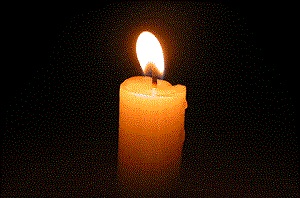Each November we pay tribute to the victims of wars around the world through public memorials. As a Tamil-Canadian, I’ve attended many in addition to those held on November 11. Some for those killed in the race riots of July, 1983 in Sri Lanka, and others for victims of the 2004 Tsunami, a destructive force amongst many others—only in that case there was no discrimination based on race, class, language, or religion.
I attended Tamil memorials first alongside my dad as a way for him to ensure that I knew the history of the Tamil people even as it was being rewritten, so that he could share the world that he’d grown up in, even as it was being destroyed. Eventually I started going on my own as I tried to understand things that always felt like they were just beyond my reach.
Being torn between two worlds, is not something that immigrants go through alone, since their children inevitably inherit the worlds they narrate. I was born in Montreal, had never been to Sri Lanka before 2003, and have not been able to go back since. But it has always been present in my life.
Before going there, the country and its people existed in my mind through my family, through conversations about life back home, and my parents being glued to the TV and radio as they tried to bridge the gap between themselves and their first home.
I’ve spent much time, because of this, trying to make sense of it all—of people who inhabit one land and similar ways of life taking up arms against one another, trying to preserve their respective cultures and destroying them all; of politicians claiming to be the people’s champion of this or that, but only succeeding in further dividing a nation; of being Canadian and not; of being asked where I am really from and not being sure; of being told year after year to remember, and after visiting Sri Lanka, never being able to forget.
What does it mean to remember? To forget? And who do we remember and forget each time this is done? Reflecting on these questions, I found myself contemplating the vast number of memorials that take place in the aftermath of violence, and the number of times phrases like “Lest we forget” are said. Has it reached the point where it has become a matter of routine and not of conviction? I hope not.
Does it make sense for us* to remember people who have been killed, or the circumstances that had caused them to be, in isolation of one another? I don’t think so and it got me thinking about the way history is written, and what each new generation is inheriting. The story is never unbiased, and it’s important to remember that it’s usually the “winner” who gets to tell their side.
When one of my cousins, at the age of eleven, was trying to articulate how she felt about it all in 2009, she alternated from saying that she hated each of the groups involved, and finally said “I hate this war.” I felt every bit as confused as she did, but we agreed that the war was the thing to be hated. The animosity between the different ethnic groups in Sri Lanka had enough advocates as it was.
It may seem futile to try to understand the brutality of war, but it is important that you do reflect upon it, however you choose to do so this year. Representing history in certain ways has led us to this present moment, but the possibility to move forward and strive for peace still exists—as much as it has always existed. But first, we have to choose that story to be told.
“Watch your thoughts, for they become words.
Watch your words, for they become actions.
Watch your actions, for they become habits.
Watch your habits, for they become character.
Watch your character, for it becomes your destiny.”—Anonymous
*Canadian-Tamil, Tamil-Canadian, a part of the Tamil Community or just plain Tamil—however you identify yourself.

 Nivethika Thambithurai
Nivethika Thambithurai





